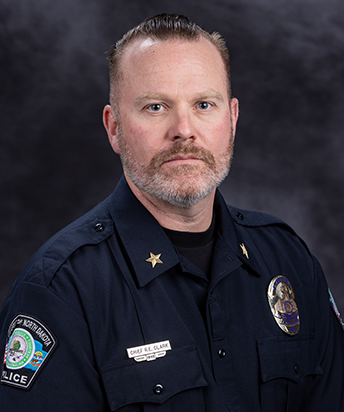Behavioral Intervention Team
BIT provides assistance to those in need.
The Behavioral Intervention Team (BIT) assesses whether individuals pose a threat to themselves or others and intervenes when necessary. We are a team of multi-disciplinary and cross-community leaders who work together to:
- Promote coordination and communication across UND.
- Support student, faculty and staff success.
- Protect the health and safety of the community and its members.
Reporting an Incident to the BIT
Student Concerns
701.777.2664
Share a student concern
Faculty and Staff Concerns
701.777.4361 (UND Human Resources)
Share a faculty or staff concern
Immediate Safety Concerns
If someone's behavior leaves an individual feeling frightened and in fear for their personal safety or the safety of others, they should call (9-1-1) or contact the University Police Department immediately (701.777.3491). The University Police Department works closely with members of the BIT and will consult with offices as needed.
Anonymous Report
Individuals with information can file a report anonymously. The institutions ability to respond may be limited due to the information being shared anonymously.
About BIT
The BIT is a multi-disciplinary team of qualified campus professionals that meets weekly to discuss new items of concern, review ongoing items and concern, and review behavioral reports received in the past week. The BIT core and expanded members have been selected due to their positions at UND which allow them to have unique information and experiences in dealing with University community members and organization. As needed, additional people may be asked to meet with the BIT to offer specific information about an individual or situation.
BIT members and members of the University community can request items be reviewed by the BIT. This includes reviewing specific individuals of concerns as well as reviewing / discussing upcoming items that may result in items of concern. Community members can share concerns through contacting a core member or sharing a concern though the Maxient reporting system. Reporting information is available on the SafeUND website.
Core members will be expected to attend weekly meetings. If core members are unable to attend weekly meetings, they will be expected to have someone attend in their absence. Core members may have their proxy attend in addition to their attendance to help provide continuity of services.
The Dean of Students will be the chair of the BIT. The Assistant Director of Community Standards will chair the BIT in the absence of the chair. Additionally, core members of the BIT may call and chair a BIT as needed. Finally, the Associate Vice President for Human Resources & Payroll Services may call and chair a BIT meeting.

- alex.pokornowski@UND.edu
- 701.777.2892
-
Memorial Union Room 229D
Grand Forks ND 58202-7140

- rodney.e.clark@UND.edu
- 701.777.3491
-
Office of Safety / Safety & Security Room 103
Grand Forks ND 58202-9035

- donna.smith@UND.edu
- 701.777.4171
-
Twamley Hall Room 314
Grand Forks ND 58202-7097

- heather.wages@UND.edu
- 701.777.2049
-
Carnegie Hall Room 206
Grand Forks ND 58202
Expanded members will be invited to attend the weekly meetings. Expanded members are not required to attend. Expanded members may attend the entire meeting or just the portion of the meeting that pertains to them. Expanded members are not required to have someone attend if they are unable to attend.

- telissa.stumpf@UND.edu
- 701.777.3859
-
McCannel Hall Room 100
Grand Forks ND 58202-9038

- margaret.varberg@UND.edu
- 701.777.4802
-
Twamley Hall Room 409A
Grand Forks ND 58202-7127

- elizabeth.jarnigan@UND.edu
- 701.777.5585
-
Hyslop at Memorial Village
Grand Forks ND 58202-9013

- ndyon@nd.gov
- 701.777.2378
-
Twamley Hall Room 116
Grand Forks ND 58202-8196

- david.dodds@UND.edu
- 701.777.5529
-
Skalicky Tech Room 137
Grand Forks ND 58202-7142
Dean of Students (Chair)
- The Chair will be a senior Student Affairs administrator who has high level authority to manage student behavior and who has a solid understanding of UND student policies, procedures, and student disciplinary matters.
- The Chair will ensure that all roles and responsibilities of BIT members are clearly articulated and that all BIT practices and procedures conform to UND policies and applicable ethical, legal, and best practices.
- The Chair ensures that the team tracks BIT data through annual reports and other methods.
- The Chair, in conjunction with other BIT members, will monitor and periodically update practices and procedures as the law and best practices change.
- The Chair (or designee) will be the first designated point of contact for staff, faculty, students, and others who may have concerns about a particular student.
- The Chair (or designee) will make parental notifications.
- The Chair (or designee) will convene the BIT.
Associate Vice President for Public Safety and Chief of Police (law enforcement member)
- The law enforcement member will provide safety planning as well as gather background information regarding individuals who may be of concern.
- The law enforcement member will also be responsible for following up with any person that has referred an individual to the BIT as a threat to public safety.
Assistant Director of Community Standards
- The Assistant Director of Community Standards is a senior Student Affairs administrator who has high level authority to manage student behavior and who has a solid understanding of UND student policies, procedures, and student disciplinary processes.
- The Assistant Director will assume the position of Chair when the Dean of Students is not available.
- The Assistant Director will be the second designated point of contact for staff, faculty, students, and others who may have concerns about a particular individual.
- The Assistant Director will make parental notifications.
University Counseling Center (mental health professional)
- The mental health professional cannot disclose identifiable patient information however; they can offer assistance by talking in hypothetical terms about similar situations or offering guidance regarding the best plan of action given the details of the specific case.
In the event of an emergency situation, core members will be phoned or emailed to determine a response plan. The chair of the BIT and two other BIT members must be present before a response plan can be implemented.
The BIT will review credible reports involving students, faculty or staff members. Information that may be reviewed by the BIT includes but is not limited to the following:
- University Police (UPD) reports
- Grand Forks Police (GFPD) and other law enforcement agency reports
- Reports submitted by Housing and other staff members
- Care Team reports
- Reports provided to the University by faculty, staff, students or other individuals, either directly or anonymously
- Data regarding a student's disciplinary history
Following a review of the information, the BIT will develop an appropriate plan of action. The following questions will be considered (Dunkle, Silverstein, & Warner, 2008).
- What is the behavior?
- Where is the behavior occurring?
- How does the behavior affect the community?
- Is the identified student in imminent danger or an imminent danger to the community?
- Are there any past documented incidents/behaviors?
- What do we know of the student's academic performance or behavioral history?
- What are the ethical/legal issues?
- What systems need to be involved in finding more information or responding?
Possible campus responses include but are not limited to the following:
- Monitor the situation
- Engage directly with the individual to de-escalate the situation/concern
- Work with a trusted peer or ally to monitor the individual/situation more closely
- Work with other departments to coordinate a plan of action (e.g., assessment, counseling, case management, disciplinary action)
- Voluntary referral for mental health assessment or treatment
- Mandated psychological assessment
- Disciplinary review/action
- Notification of family member(s)
- Separate the student from the institution (Emergency action or, voluntary leave)
- Deisinger, G., Randazzo, M., O'Neill, D., & Savage, J. (2008). The Handbook for Campus Threat Assessment & Management Teams. TSG Solutions.
- Dunkle, J. H., Silverstein, Z. B., & Warner, S. L. (2008).Managing violent and other troubling students: The role of threat assessment teams on campus. Journal of College and University Law 34(3).
- Higher Education Mental Health Alliance (2012). Balancing Safety and Support on Campus: A Guide for Campus Teams.